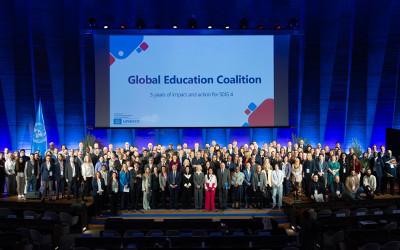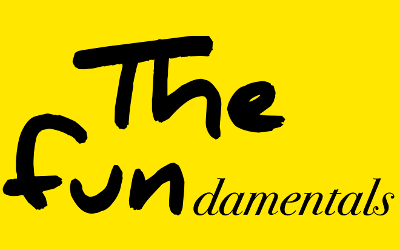What will education look like in a fairer, greener future- and how do we get there?

As we approach 2030, the clock is ticking on the world’s promise to deliver Sustainable Development Goal 4: inclusive, equitable, and quality education for all. Yet for many educators and policymakers, global education still feels like an abstract or secondary concern - something for others, somewhere else. But the truth is this: the future of education is unavoidably global, and its transformation is central to achieving a just, sustainable world.
From digital disruption and rising inequality to climate emergency and forced displacement, the challenges reshaping education are no longer confined to national borders. What happens in one classroom, community, or continent increasingly affects learners everywhere. This calls for a shift in mindset: education systems must evolve not only to prepare individuals for the future of work, but also to equip them to engage with the future of the world.
In response, the Global Education Coalition (GEC) - convened by UNESCO - now unites over 200 partners, including governments, NGOs, and universities like The Open University, around a shared commitment: ensuring no learner is left behind. It’s not just about access - it’s about creating inclusive, action-oriented learning systems that help every student thrive and contribute to a better future.
At the recent GEC summit at UNESCO - Paris, Dr Alexandra Okada from The Open University (OU) introduced three innovative OU-led projects that exemplify what this future-ready, globally-minded education can look like:
- METEOR project funded by European Commission, which cultivates digital, green, and collaborative research skills for the next generation of changemakers.
- CATCHup research funded by World Vision, a literacy and learning support programme for vulnerable children across Africa and Latin America.
- CONNECT2030 initiative with Mastery Science funded by Open Societal Challenges, which enables students and early-career researchers—especially from underrepresented groups—to co-create real-world solutions for the Sustainable Development Goals (SDGs).
All three initiatives are grounded in a shared pedagogical approach: the CARE–KNOW–DO model, developed by Dr Okada. This framework connects learners’ concerns for global challenges (CARE), with rigorous scientific and community knowledge (KNOW), and empowers them to take meaningful, collaborative action (DO).
“Global education is not an add-on—it’s the foundation for building just and sustainable futures,” Dr Okada explains. “If we want learners who can tackle real challenges, we must connect their learning to the world beyond the classroom.”
These projects demonstrate that global education isn’t about vague ideals—it’s about practical innovations that improve learning outcomes, foster inclusion, and strengthen international collaboration. Whether through open schooling or open science, digital platforms or community engagement, the GEC and METEOR show how shared knowledge and co-created solutions can transform education into a driver of sustainability and equity.
As climate change, digital transformation, and geopolitical instability continue to test the resilience of education systems, partnerships like these offer a roadmap. They show how education—when it’s truly global—can empower not just future professionals, but future citizens.
References
- United for SDG4: the Global Education Coalition in action - progress report on the Coalition’s activities and impact, focusing on multistakeholder cooperation for SDG 4.
- UNESCO’s Global Education Coalition: A multi-sector Coalition to protect the right to education - an overview of the Coalition’s mission, partners, and approach to safeguarding education rights during disruption.
- Global Education Coalition Annual Member Meeting (24 March 2025) - the official event page for the 2025 annual meeting, including objectives, agenda, and collaborative focus.
- PDF programme
- Advancing education leadership in the AI age: Holistic approaches to digital transformation in education (25 March 2025) - UNESCO workshop and technical session on digital transformation, AI, and education leadership.
- UNESCO’s Global Education Coalition: New report highlights the key role of multi-stakeholder collaboration - news article summarizing the Coalition’s fifth-year report and the importance of collaboration for education goals.
- Five years of impact: UNESCO’s Global Education Coalition highlights key milestones - summary of the Coalition’s achievements, including digital transformation and flagship missions.
Contact our news team
For all out of hours enquiries, please telephone +44 (0)7901 515891
Contact detailsNews & articles

The FUNdamentals: Why fun matters more than we think
In a world that feels increasingly serious and pressured, fun can seem like a guilty pleasure — something optional, even frivolous. But what if fun isn’t an add on at all? What if it’s essential?